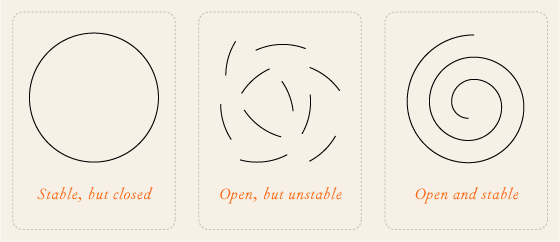Sometimes if I drink too much scotch I will announce the “I am never drinking ever again for a week.”
An ironic worldview permits statements like this. Why not admit that eternally-binding resolves, while being experienced in the moment as permanent, are, simultaneously, recognized in history/biography as temporary?
I will argue that this kind of ironizing is not only permissible but necessary and good, and supportive of a liberal, pluralistic society.
A pluralist experiences the self-evident truth and goodness of their own worldview, beliefs, tastes, priorities and moral convictions against a deeper ground of myriad others who also experience their own worldview, beliefs, tastes, priorities and moral convictions as self-evidently true and good.
Pluralism includes pluralism of scale. A historically conscious pluralist is aware that the plurality of worldviews exists not only individually, but collectively. It pertains not only to individuals, but to cultures, and to the deep interrelationships between individuals and cultures. Much of what was obviously and indubitably true and good in the past is now, to us, absurd, abhorrent and naive — and most of all to what seemed most certain and foundational. The same thing is certain to happen to our present shared convictions and foundational beliefs.
Pluralism includes pluralism of self in time. A self-aware, apperceptive pluralist will count among the myriad others their own past selves, and recall the fact, even if they cannot fully recall the experiences themselves (including the convictions and their attendant blindnesses, which, once unblinded cannot be re-blinded).
Pushing pluralism of self in time further, the most radical pluralist will count as crucially important their possible future selves. They will recall themselves prior to a past change, taking care to remember what that past self understood “everything” to include, along with the field of possibilities that followed from it. And they will recall the shock of epiphany, of change in worldview, of change in what seemed evident, relevant, possible and permanent. The experiential resources needed to anticipate future transformation are drawn indirectly (and negatively) from experiences of past transformations.
Pluralism is empathic. An empathic pluralist will strain to do full justice to their memories of the in-between of worldviews and stretch it out into its own story, in a progression of anxiety, to aversion, to panic, and finally to perplexity, where orientation, definition, method, logic and words fail. They will never forget why so few willingly immerse in this mercury mikvah — this expanse of the worldless-blinds, the liminal void, the rings of ego-solvent Hadean waters, the churning chrome of “seen” blindness — and why those facing it deserve understanding, if not compassion.
And finally, pluralism is reflexive, symmetric and demanding. A committed pluralist will know, with the intensest irony, that they, most of all, fear reentering liminal perplexity. Even with their experiences of before, during and blissful after, even with their firsthand evidence and insights — they will balk like everyone else when the time comes for them to follow their own advice. Those others — they are the ones who need to go in. But, the pluralist will also know, with all the irony they can intentionally summon, that they must keep going back in, and that their only claim to their own kind of truth and goodness is going back in, despite their already-knowing of everything worth knowing.
*
My moral alchemy has its own weird metallurgy which transmutes silver, gold, mercury and iron(y).
